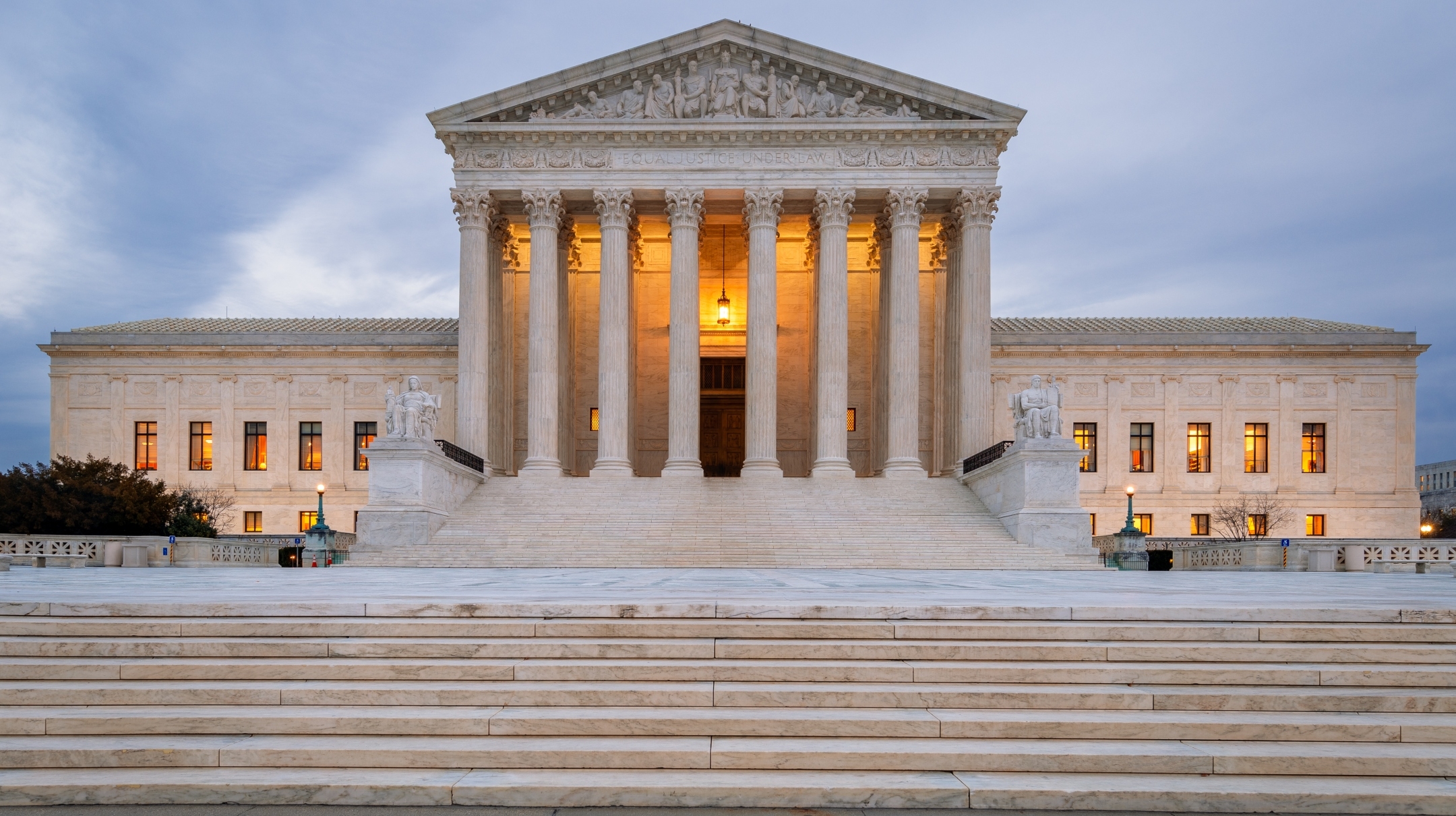ADL, AJC join Orthodox groups in Supreme Court case on supporting religious protections in the workplace
The right of religious expression in the workplace has long been a unifying cause across the Jewish spectrum

Stock photo of the U.S. Supreme Court. (Joe Daniel Price/Getty Images)
WASHINGTON (JTA) — Two leading Jewish civil rights organizations are part of a coalition of groups asking the U.S. Supreme Court to uphold protections for religious observance in the workplace in a case that has already drawn support from Orthodox Jews.
The Anti-Defamation League and the American Jewish Committee each joined separate amicus briefs this week in Groff v. DeJoy, on behalf of an evangelical Christian postal worker whose case requesting to get Sundays off is under consideration by the court.
Orthodox groups have been backing Gerald Groff since last year, when he was endeavoring to get the Supreme Court to consider the case. The court took up his case in January.
The pairing of both secular groups with the Orthodox in a religious freedom case is rare — they have frequently been on opposite sides on church-state separation issues such as same-sex marriage or government funding for religious education — but the right of religious expression in the workplace has long been a unifying cause across the Jewish spectrum.
The litigant in this particular case wants Sundays off, but the AJC explained in a statement that in workplaces that refuse to grant a day off for religious observance, half of the adversely affected employees take Saturday as a day of rest, among them observant Jews.
“Contrary to established law, religious discrimination remans a feature of the American workplace,” the AJC’s statement said.
Groff is a Pennsylvania mailman who sought accommodations after the U.S. Postal Service started Sunday deliveries on behalf of Amazon in 2013. At first, Groff was able to work around Sunday deliveries, but as demand for the service grew, USPS disciplined him for declining Sunday shifts. He quit and sued. (Louis DeJoy, named in the case, is the postmaster general.)
A 1972 amendment to the 1964 Civil Rights Act guarantees freedom from discrimination based on religion, as long as employers would not face “undue hardship.” But Congress did not define that term.
Supporters of Groff see the case as a chance to overturn a key precedent established in Trans World Airlines v. Hardison, the 1977 Supreme Court decision that ruled for the airline over a member of a Christian sect who sought Saturdays off, rejecting three possible accommodations posited by a lower court as “undue hardships.” The possible accommodations involved allowing the employee a four-day work week; paying other employees overtime to fill his shift; or allowing the employee to leapfrog more senior employees in seeking Saturdays off.
Religious groups have long argued that the court’s rejection of those accommodations essentially made the 1972 amendment meaningless. Lower courts have ruled against Groff in this case, citing the 1977 Supreme Court decision.
The ADL said the case was a matter of fairness.
“People of faith will forever be unable to participate fully in society if they are forced to choose between their religion and earning a living,” ADL CEO Jonathan Greenblatt said in a statement.
This article originally appeared on JTA.org.
A message from our CEO & publisher Rachel Fishman Feddersen

I hope you appreciated this article. Before you go, I’d like to ask you to please support the Forward’s award-winning, nonprofit journalism during this critical time.
We’ve set a goal to raise $260,000 by December 31. That’s an ambitious goal, but one that will give us the resources we need to invest in the high quality news, opinion, analysis and cultural coverage that isn’t available anywhere else.
If you feel inspired to make an impact, now is the time to give something back. Join us as a member at your most generous level.
— Rachel Fishman Feddersen, Publisher and CEO



















